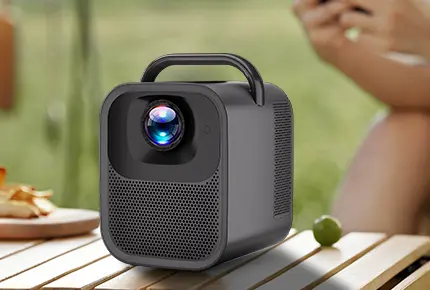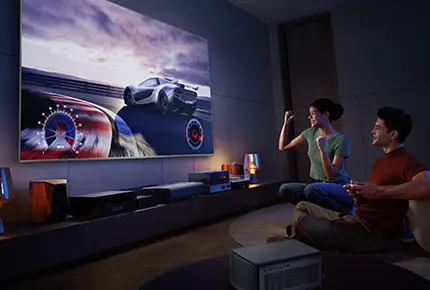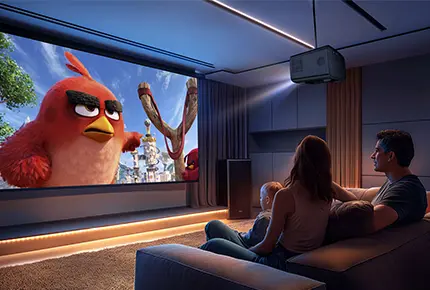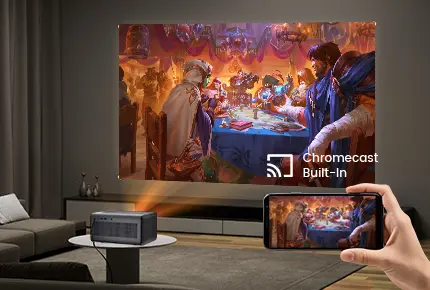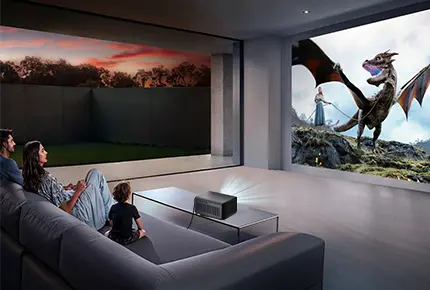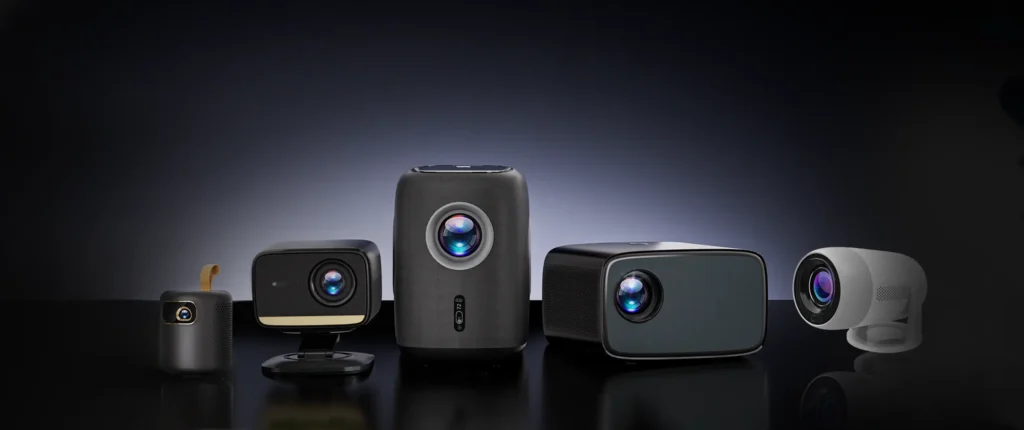
When you get a projector and start using it, the first step is to set it up properly. There are some things you need to know.
Choose a Proper Environment
Ambient light control: Give priority to a dark environment to avoid strong light affecting the projection (pull down the curtains, turn off the lights, etc.).
Space location: Ensure there is enough distance between the projector and the screen/wall, and reserve space for viewing.
Place the projector: The projector should be placed on a stable surface (such as a table or mount), with the lens facing directly toward the projection area to avoid tilting.
Check the Accessories
Make sure the power adapter matches the voltage and that the connection is stable.
Prepare the relevant cables (such as HDMI, VGA, USB-C). If enhanced sound is needed, prepare an extra speaker.
Device Connectivity
If you need to connect other devices, both wired and wireless connection options are available.
Wired connection: Use HDMI, VGA, or USB cables to connect the projector to devices like a PC, tablet, laptop, game console, etc.
Wireless connection: Make sure the projector and the device are on the same Wi-Fi network, then use screen mirroring to connect.
Press the power button on the projector or use the remote control to turn it on. Wait 1–2 minutes for the projector to fully start up.
Enter the projector’s “Menu” and select the corresponding signal source.
Image Adjustment and Optimization
Focus adjustment: Many projectors have an auto-focus function. If using manual focus, rotate the focusing ring on the lens until the image is clear.
Zoom adjustment:
Optical zoom: Slide the zoom knob on the lens to change the image size.
Digital zoom: Use the “Size Adjustment” option in the menu to zoom in or out.
Keystone adjustment: Some projectors support automatic keystone correction. If only manual correction is available, use the remote control to adjust the four corners of the image to avoid distortion.
Image parameter settings: Adjust brightness and contrast based on ambient light. Select “Standard” or “Cinema” mode to improve color accuracy. Set the resolution in the projector’s settings (e.g., 1920×1080).
Explore Koonew Automatic focus and keystone projector: https://www.koonew.com/product/portable-smart-projector-with-google-tv/
Enhance the Audio Quality
If you need external speakers to improve sound, connect them to the projector using an audio cable or Bluetooth.
Play a test audio source (such as a video clip), adjust the volume to a moderate level, and avoid distortion or overly low sound.
After completing these preparations, you can start enjoying home entertainment, office meetings, or study sessions.

